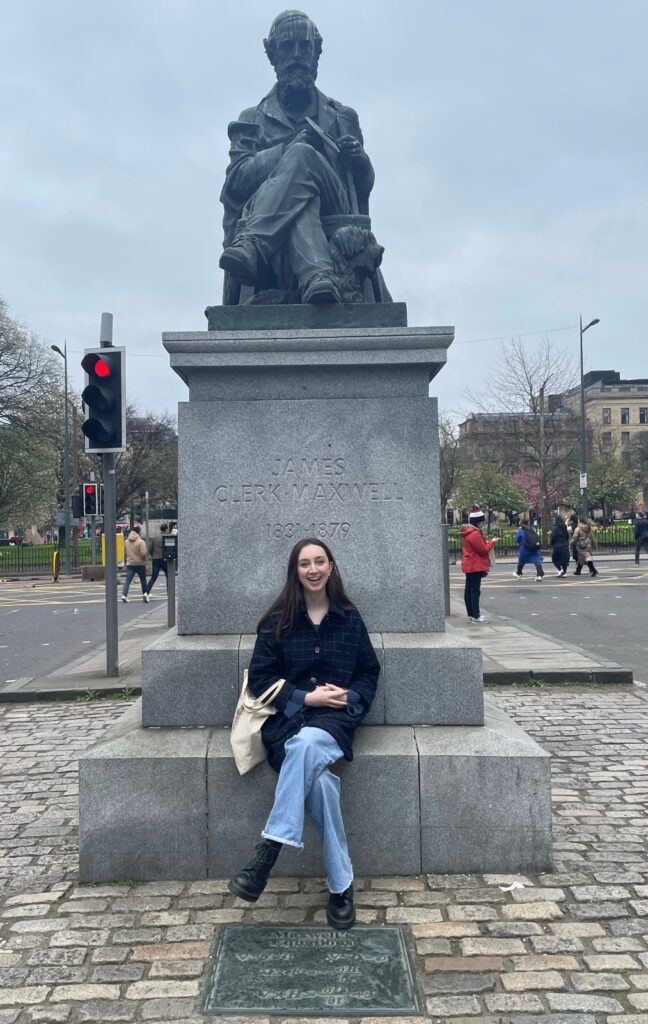by Kaitlyn Louth
Applying for a PhD can be a very daunting process. But worry not because if you’re considering applying for one and don’t know where to start, here are my top 10 tips to help you prepare and increase your chances of securing the right position for you:
1. Research different types of PhD programmes: There are a few different types of PhD programmes, e.g. applying for a specific advertised project, a programme with integrated study where you continue to take modules, or applying by submitting your own research proposal. So it’s important to research the differences and which type of programme would suit you best! For example, if you know that PhD study is for you, but are unsure on the exact area of research, then consider applying for a programme with integrated study, where you have the opportunity to ‘test out’ rotation projects in the first year before deciding on your thesis.
2. Identify potential supervisors: Talking to your current supervisor, mentor or professor is a great starting point for finding potential PhD supervisors or projects. With their expertise, they should be able to offer suggestions for people who are working in your areas of interest, or forward open PhD position opportunities to you. Checking websites such as findaphd.com, where you can subscribe to a mailing list about positions, or europeanwomeninmaths.org that have a newsletter with open positions, are good ways to hear about what is available out there. You can also directly look for professors who are conducting research in areas that interest you, read their publications and familiarise yourself with some of their research. Reach out to them to see if they are accepting new students. Be sure to mention why you’re interested in working with them and ask what their application process looks like. European Women in Maths also have a mentorship scheme which is very supportive if things can become a bit overwhelming; it is becoming more and more common to have mentorship schemes within universities too.
3. Polish your application materials: When applying for a PhD, it’s important to submit polished and professional materials. Your CV should be up to date and tailored to each programme you’re applying to. Equate Scotland provide women in STEM with a free CV review service, and STEM Graduates have some great tips on how to structure CVs such as what headings to include. Be sure to include any relevant experience, especially research experiences such as internships, placements and any publications (although remember publications are definitely NOT necessary to secure a PhD position). Your personal statement should explain your research interests, why you’re interested in pursuing a PhD in mathematics/statistics, and how your background and experience make you a good candidate for the programme. Remember that your final year research project at university is of course research experience. Reach out to your local student career service too, they can provide advice on application materials for higher education opportunities, not just for industry jobs!
4. Request letters of recommendation: You’ll likely be asked for a couple of references from those who can speak to your academic abilities, research experience, and potential as a mathematician or statistician. Choose recommenders who know you well and can provide specific examples of your strengths, these will typically be your academic supervisor or academic tutor. Be sure to give your recommenders plenty of time to write their letters because there are often strict deadlines, and provide them with any information they might need to write a strong letter, such as your CV and personal statement. Also it can be useful for them to know details of the programme, such as the types of candidates they’re looking for, so they can tailor their reference letters.
5. Take additional maths courses or undertake extracurricular research: Consider taking additional courses online or take the time to do independent study on any areas which interest you research-wise, and which fill knowledge gaps from your undergraduate course. In particular, learning how to code in a new language is extremely beneficial to strengthen any application. You can also consider looking out for opportunities to do research experience. This could be an extended summer project at your home institution, or a research internship elsewhere, for example. This will give you a taster of whether you would enjoy research, and is a great addition to your application and an interview conversation point. These things are definitely optional and dependent on time constraints, so even wider reading around your areas of interest will strengthen your application.
6. Attend information events and open days: Things such as information fairs, university open days and insight events for PhDs are really great to hear directly from current PhD students and their experiences, as well as network with other mathematicians in the same position as you. For example, The Piscopia Initiative holds an annual forum every year that discusses the experiences of women and non-binary students doing PhDs, as well as providing invaluable advice on the application process. They provide travel funding for this too! Open days are really useful to obtain a feel for the university, its people and the city itself. The people you work with and the environment you work in are super important to consider. Also, PhD Your Way is an annual, online event aimed at people from underrepresented groups in mathematics who want to understand all there is to know on applying for a mathematics PhD, with opportunities to speak to current students from various universities.
7. Be prepared for interviews: If you are invited for an interview, be prepared to discuss your research interests, relevant coursework, and any relevant experience you have. Be sure to research the programme and faculty ahead of time so you can ask informed questions. You might also be asked about your future goals and how you see yourself contributing to the research team and department. Sometimes interviewers may ask you to prepare a presentation on a previous research topic, so it is a good idea to get feedback on this beforehand from your current academic supervisor, for example. Be prepared to answer questions on the presentation afterwards.
8. Consider the culture and community: It’s important to consider the culture and community of the programme you’re applying to. Look for programmes that prioritise collaboration and support for their students. You should reach out to current graduate students in the programme, especially students of the supervisors you’re interested in working with. This will give you a sense of the community and what it’s like to be a student there, and an idea as to whether the supervisor is a good working match for you. Consider factors such as location, cost of living, and the availability of resources such as libraries, research facilities, and funding opportunities.
9. Be aware of application deadlines and requirements: Make sure you are aware of the application deadlines and requirements for each programme you are applying to. Be sure to give yourself plenty of time to gather materials and submit your application on time, and give your references plenty of time to write their letters of recommendation. Some programmes may require additional materials such as academic transcripts and graduate certificates, so be sure to read the application requirements carefully and follow them closely.
10. Be persistent and flexible: Applying for a PhD can be a competitive process, so it’s important to be persistent and flexible. I would recommend applying to 3-4 programmes, however if you are not accepted into your top choices, taking a gap year to gain more experience and strengthen your application is a great option too, rather than accepting a programme which may not be 100% for you. Remember there is no ‘right’ time to do a PhD, everyone is different.
By following these tips and taking the time to research potential programmes, polish your application materials, and build relationships with potential advisors and peers, you can increase your chances of being accepted into a programme that will help you achieve your academic and professional goals. Remember to stay persistent, flexible, and open to new opportunities along the way. Good luck!
Note that these tips are based on my personal experience and are not exhaustive, so use them at your own discretion!
About the author

Kaitlyn Louth is a second year PhD student joint between The University of Edinburgh and Heriot-Watt University. Her research is in Bayesian Modelling and Statistical Machine Learning for Critical Illness Morbidity Prediction. In particular, using Bayesian hierarchical modelling in a neural network setting to identify changes in morbidity rates for different diseases over time, including regional or socioeconomic differences, and characterising rates for specific cancers and conditions such as heart attacks and strokes. When she is not PhD-ing, she will typically be singing karaoke, dog walking around Holyrood Park or having a little boogie (ballet, tap and very recently aerial)!

